Year 4
The English curriculum is built around the three interrelated strands of language, literature and literacy. Teaching and learning programs should balance and integrate all three strands. Together, the strands focus on developing students' knowledge, understanding and skills in listening, reading, viewing, speaking, writing and creating. Learning in English builds on concepts, skills and processes developed in earlier years, and teachers will revisit and strengthen these as needed.
In Years 3 and 4, students experience learning in familiar contexts and a range of contexts that relate to study in other areas of the curriculum. They interact with peers and teachers from other classes and schools in a range of face-to-face and online/virtual environments.
Students engage with a variety of texts for enjoyment. They listen to, read, view and interpret spoken, written and multimodal texts in which the primary purpose is aesthetic, as well as texts designed to inform and persuade. These encompass traditional oral texts including Aboriginal stories, picture books, various types of print and digital texts, simple chapter books, rhyming verse, poetry, non-fiction, film, multimodal texts, dramatic performances and texts used by students as models for constructing their own work.
The range of literary texts for Foundation to Year 10 comprises Australian literature, including the oral narrative traditions of Aboriginal and Torres Strait Islander Peoples, as well as the contemporary literature of these two cultural groups, and classic and contemporary world literature, including texts from and about Asia.
Literary texts that support and extend students in Years 3 and 4 as independent readers describe complex sequences of events that extend over several pages and involve unusual happenings within a framework of familiar experiences. Informative texts include content of increasing complexity and technicality about topics of interest and topics being studied in other areas of the curriculum. These texts use complex language features, including varied sentence structures, some unfamiliar vocabulary, a significant number of high-frequency sight words and words that need to be decoded phonically, and a variety of punctuation conventions, as well as illustrations and diagrams that support and extend the printed text.
Students create a range of imaginative, informative and persuasive types of texts including narratives, procedures, performances, reports, reviews, poetry and expositions.
(source: www.australiancurriculum.edu.au)
Achievement Standard
Receptive modes (listening, reading and viewing)
By the end of Year 4, students understand that texts have different text structures depending on purpose and context. They explain how language features, images and vocabulary are used to engage the interest of audiences. They describe literal and implied meaning connecting ideas in different textsÂ
They fluently read texts that include varied sentence structures, unfamiliar vocabulary including multisyllabic words. They express preferences for particular types of texts, and respond to others' viewpoints. They listen for and share key points in discussions.
Productive modes (speaking, writing and creating)
Students use language features to create coherence and add detail to their texts. They understand how to express an opinion based on information in a text. They create texts that show understanding of how images and detail can be used to extend key ideas.
Students create structured texts to explain ideas for different audiences. They make presentations and contribute actively to class and group discussions, varying language according to context. They demonstrate understanding of grammar, select vocabulary from a range of resources and use accurate spelling and punctuation, re-reading and editing their work to improve meaning.
(source: www.australiancurriculum.edu.au)
- Plus Plan
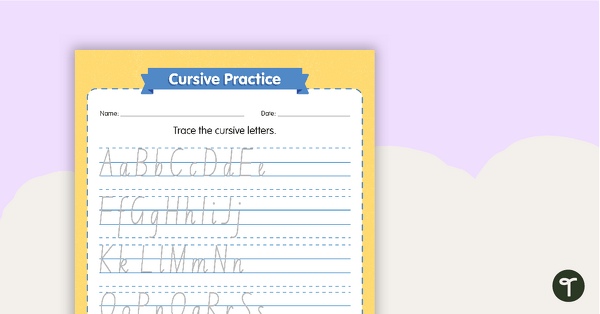
Cursive Alphabet Handwriting Practice Sheets
Download this set of 6 sheets to get your students writing letters of the alphabet in cursive.
- Plus Plan
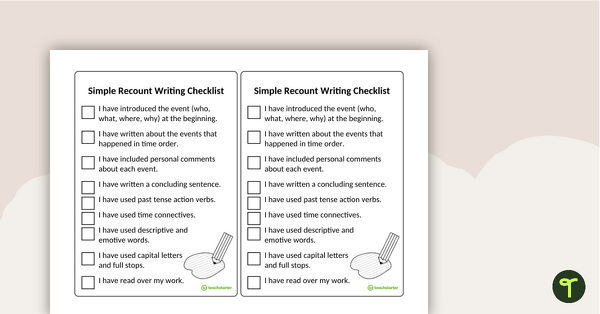
Recount Writing Checklist Pack
Use this recount writing checklist pack when teaching your students how to edit their writing.
- Plus Plan
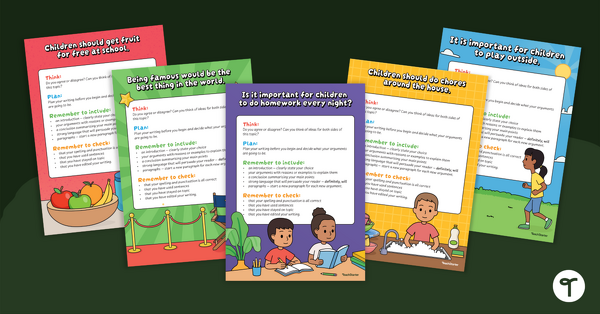
5 Persuasive Writing Prompts
Inspire your students through these relevant persuasive writing prompts.
- Plus Plan
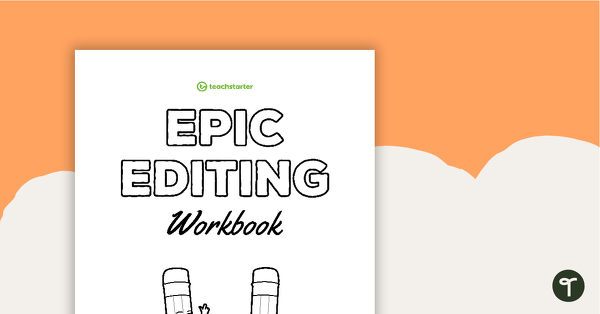
Epic Editing Workbook – Year 3 and Year 4
Use these paragraph editing worksheets to get your students practising and refining their proofreading skills.
- Plus Plan
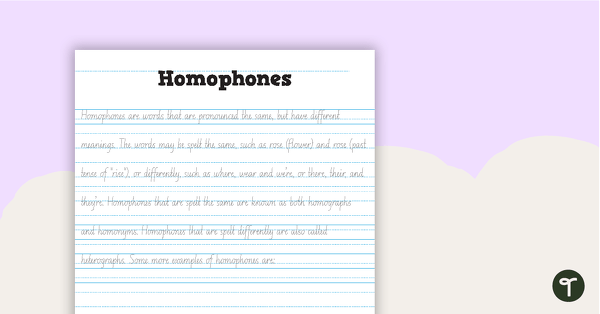
Cursive Handwriting Fluency Sheets
Fifteen handwriting sheets for upper primary.
- Plus Plan
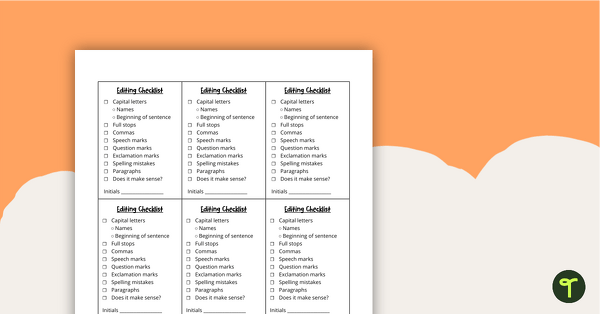
Writing Editing Checklist
Get your students using this editing checklist so that no mistake gets left behind!
- Plus Plan
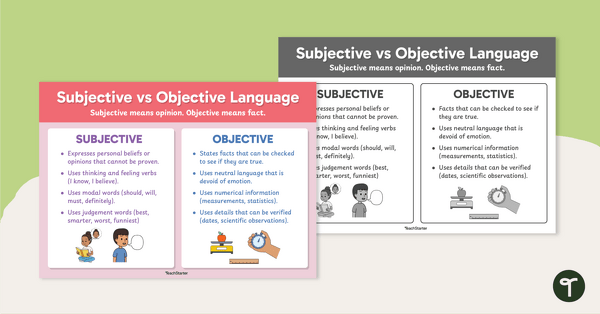
Subjective Language vs Objective Language Poster
Display this vibrant subjective language vs objective language poster in your classroom to illustrate the differences between personal opinions and factual statements.
- Plus Plan
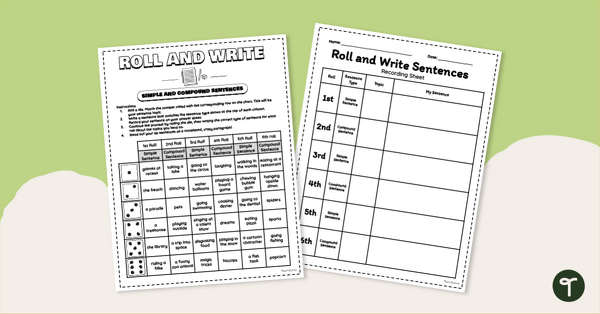
Simple and Compound - Roll a Sentence Dice Game
Play a ‘Roll-a-Sentence’ dice game to help your students practise writing simple and compound sentences.
- Plus Plan
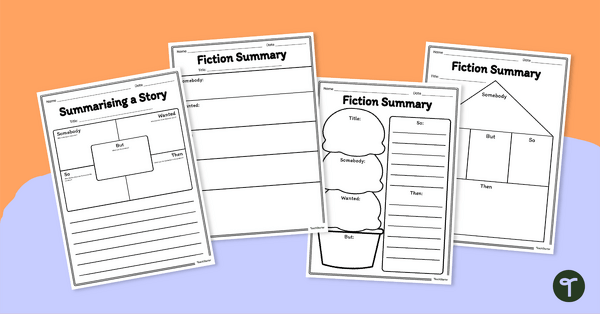
Summarising a Story Graphic Organisers
Use these graphic organisers to help students when summarising a story.
- Plus Plan
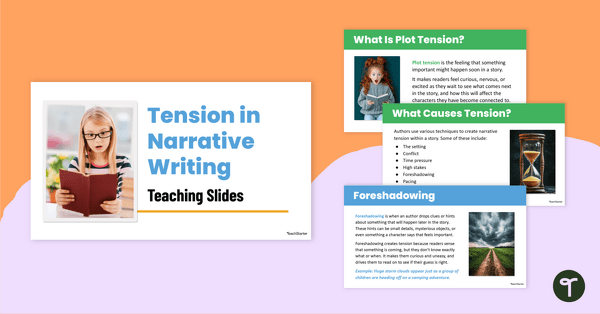
Building Tension in Narrative Writing Teaching Slides
Teach how to build tension in narrative writing with this interactive presentation that explains eight author techniques for creating suspense and excitement in stories.
- Plus Plan
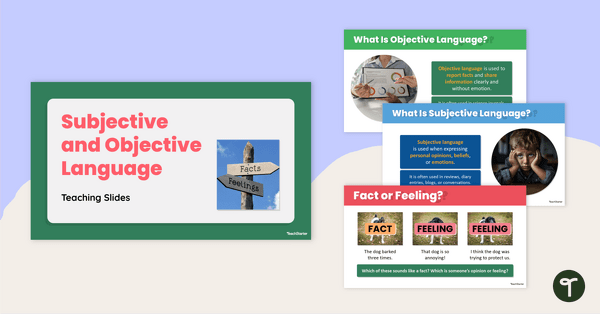
Subjective and Objective Language Teaching Slides
Teach your students how to confidently identify subjective and objective language in texts with this engaging, age-appropriate slide deck.
- Plus Plan
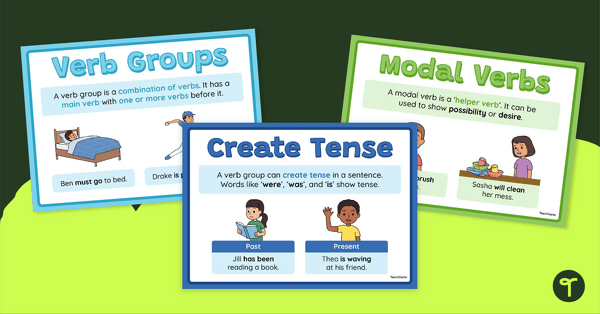
Verb Group Posters
Guide your students to be better writers with this verb group poster set to display in your classroom.
- Plus Plan
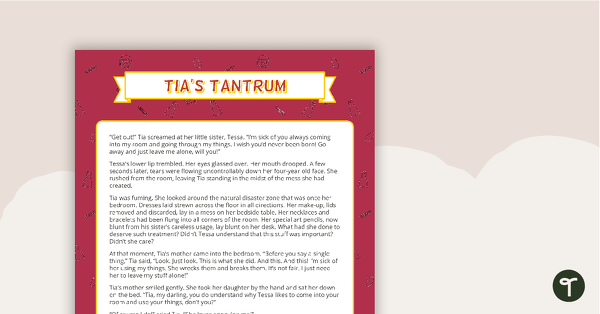
Comprehension - Tia's Tantrum
A comprehension activity using a narrative text.
- Plus Plan
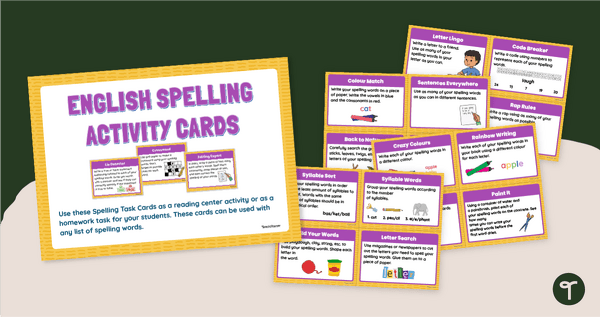
English Spelling Practice Activity Cards
Make English spelling practice more exciting with this set of 24 spelling activity task cards.
- Plus Plan
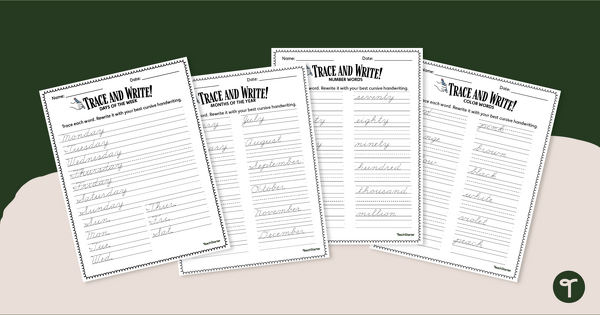
Cursive Handwriting Worksheets – Days, Months, Colours and Numbers
Trace and write days of the week, months of the year, number words, and colour words in cursive.
- Plus Plan
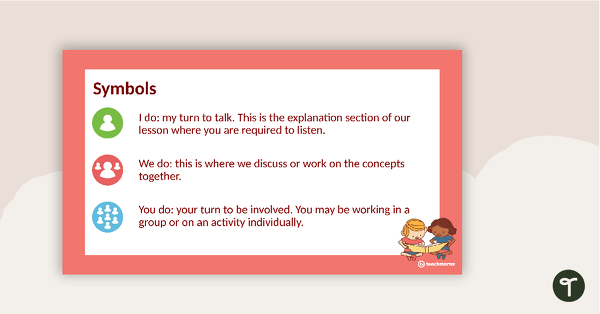
Reading Comprehension Strategies PowerPoint - Activating Prior Knowledge
A 13 slide editable PowerPoint template explaining the reading comprehension strategy of activating prior knowledge.
- Plus Plan
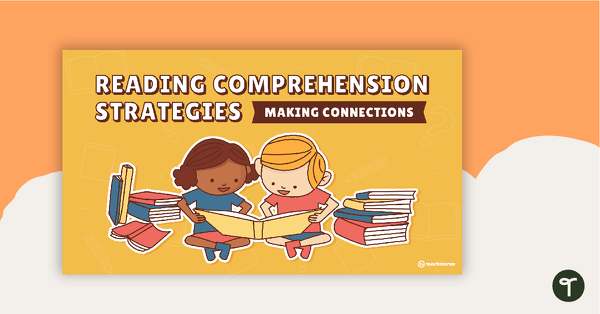
Reading Comprehension Strategies PowerPoint – Making Connections
A 14 slide editable PowerPoint template explaining the reading comprehension strategy of making connections.
- Free Plan
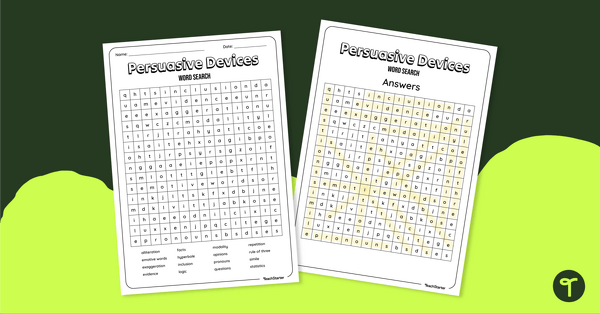
Persuasive Devices Word Search
Familiarise your students with the most common persuasive devices with a fun word search.
- Plus Plan
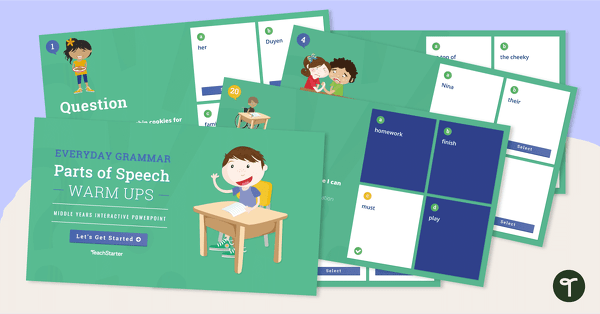
Everyday Grammar Parts of Speech Warm Ups - Middle Years Interactive PowerPoint
Review nouns, verbs, adjectives and adverbs with this 44-slide interactive parts of speech PowerPoint lesson.
- Plus Plan
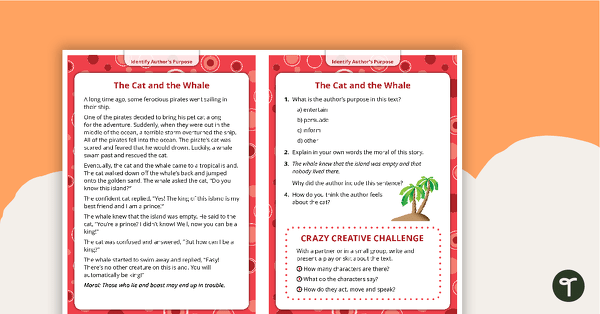
60 Comprehension Strategy Task Cards
A 144 page comprehension resource pack to help students apply comprehension strategies when reading.
- Plus Plan
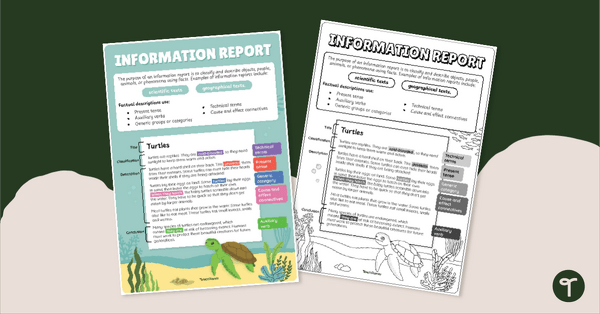
Information Report Text Type Poster With Annotations
Display this information report with annotations to help students identify the structure of this type of text.
- Plus Plan
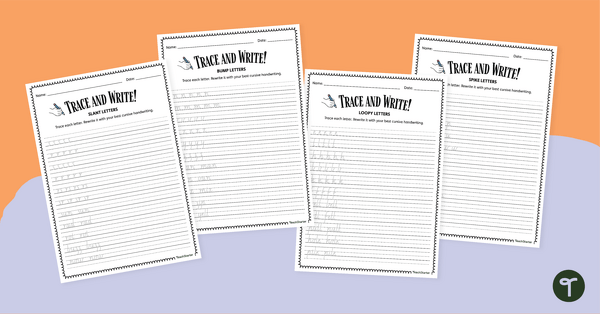
Cursive Alphabet Worksheets – Letter Groups
Use printable cursive writing worksheets PDF files to learn how to write in cursive.
- Plus Plan
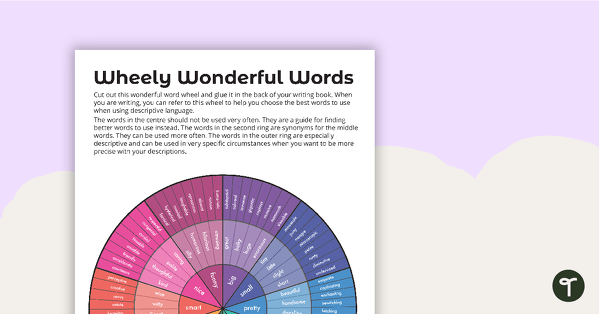
Wheely Wonderful Words – Overused Adjectives
Banish overused adjectives with a handy adjective-synonym word wheel!
- Plus Plan
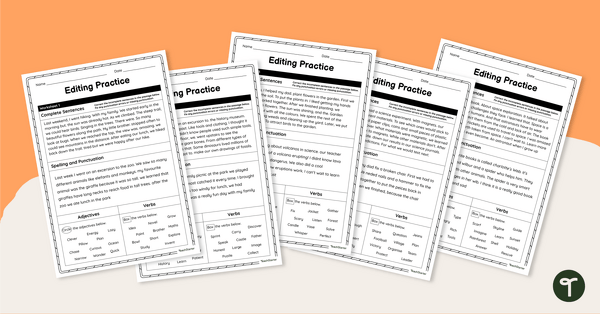
Editing Year 4 Worksheet Pack
Use this editing Year 4 worksheet pack to get your students fixing incomplete sentences, spelling errors and punctuation errors.
- Plus Plan
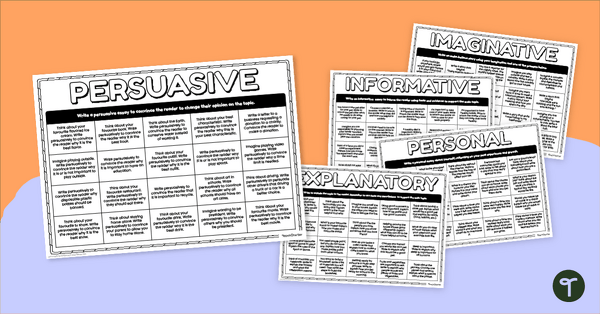
Genre of the Month - Writing Prompt Grids (Upper)
Introduce your students to a variety of writing genres with our printable genre-specific writing prompt grids.
- Free Plan
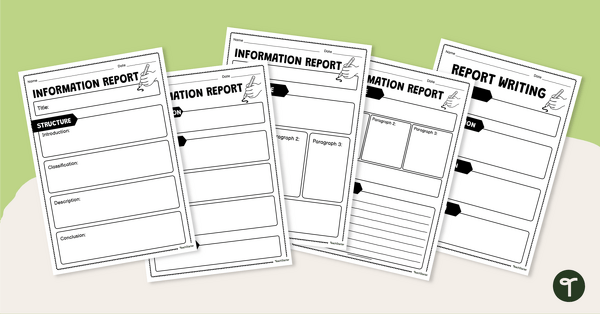
Information Report Graphic Organisers
Get your students to plan and write information reports with this set of 6 differentiated graphic organisers.
- Plus Plan
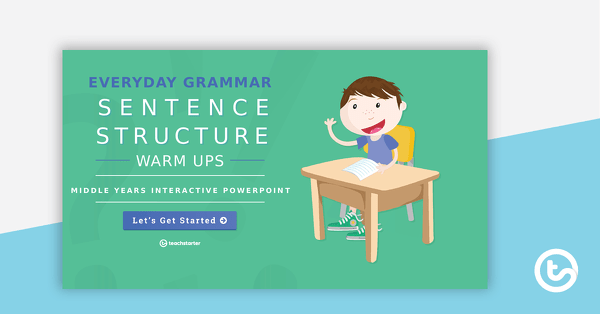
Everyday Grammar Sentence Structure Warm Ups - Middle Years Interactive PowerPoint
An engaging 44 slide interactive PowerPoint to use in the middle years classroom when learning about grammar and sentence structure.
- Plus Plan
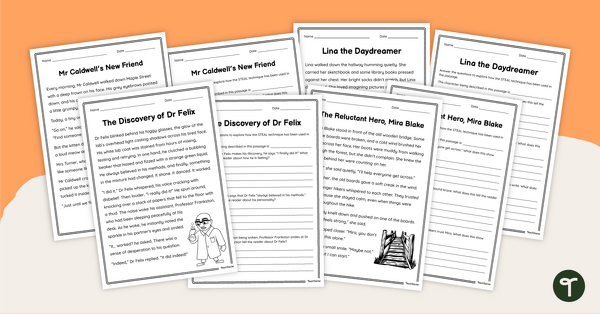
Character Description – Text Analysis Worksheets
Teach character description with this set of four worksheets that help students explore how authors use the STEAL technique to bring characters to life.
- Plus Plan
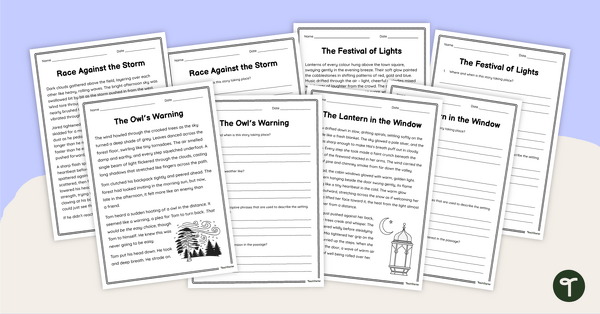
Mood in Narrative Writing – Text Analysis Worksheets
Teach mood in narrative writing with this set of four worksheets designed to help students explore narrative atmosphere in the context of real texts.
- Plus Plan
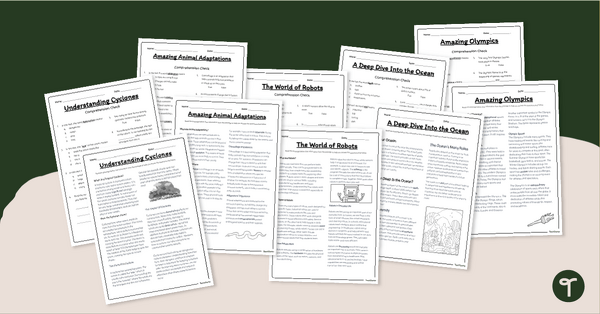
Context Clues Reading Comprehension Handouts
Use Context Clues Reading Comprehension Handouts to assess your student's ability to define unknown words using context clues.
- Plus Plan
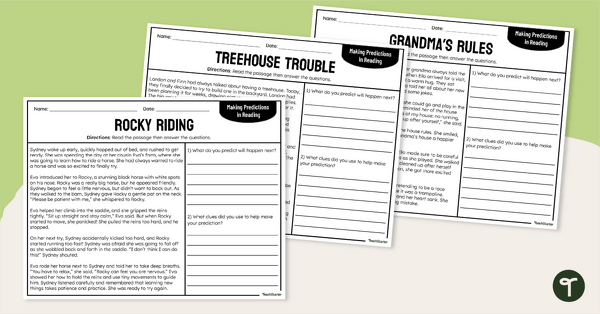
Reading Making Predictions Worksheet Pack
Practise reading and making predictions with this Reading Making Predictions Worksheet Pack.
- Free Plan
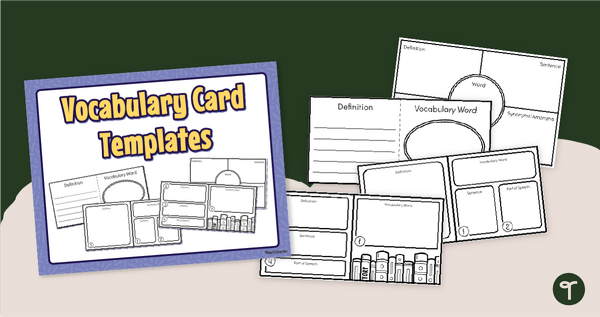
Editable Vocabulary Card Template Pack
Create English vocabulary cards to help your students study new vocabulary terms with our editable Vocabulary Card Template pack.